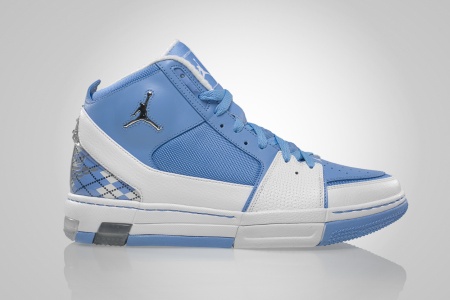
The other night I was scrolling through my Facebook news feed, mindlessly glossing over pictures, posts, and status updates, when one headline in particular caught my eye. My friend and mentor Mukund Mohan (founder of a new do-it-yourself PR company called Buzzgain), had posted a talk by Matt Mullenweg, the visionary genius behind none other than WordPress, entitled, “The First 100K Users Are Always the Hardest.”
Having spent the better part of 18 months working on two start-ups, and having experienced firsthand just how difficult it can be to attain 100 users – much less 100,000 – I felt compelled to hear what Matt had to say. If not to gain an intuition for achieving critical mass (though of course, I thought that would be nice!), then at least to audit what I had learned from my time as an entrepreneur.
Much to my surprise, the lessons that I had gleaned and the teachings that he bestowed were, for the most part, one and the same.
1) Be your most passionate user – If you can’t spend hours a day using your product, you cannot possibly expect anyone else to.
More than a year after we decided to close up shop, my former partner Ryan and I still chuckle about the mistakes that we made at The Freight Exchange. Not because we made them (for it’s always difficult to manage unknowns and succeed in spite of them when you’re doing something for the first time), but because we made them trying to start an online load board for shipping carriers and brokers. If the concept doesn’t sound particularly interesting, well, it’s because it isn’t!
2) Be anal – Everyday is an opportunity to be a new user.
One of my fondest memories working with Ryan came in early August of 2007, when after a particularly grueling and mind-numbing afternoon of work, Ryan and I decided to step outside onto the fire escape adjacent to his apartment to get some air. However, no sooner had I come to my senses, than Ryan took a deep breath, directed my attention to the brick edifice across the way and said, “You know, if you think about it, the only reason that building is still standing is because every brick was laid just right, every ounce of mortar was applied just so…” That’s when I knew I had a like-minded partner.
3) Get off the “computer” – Reorient yourself!
Like many first-time entrepreneurs (or so I tell myself), Ryan and I figured that superior technology, class room theory, automated processes, and the illusion of credibility would be more than enough to propel sales. However it wasn’t until we began cold-calling, sending out surveys, and meeting folks in person, that we realized albeit too late that: there is simply no substitute for human spirit, insight, and interaction.
4) Do your own support – Every time a current or prospective user contacts you is an opportunity to impress them.
The problem with expanding too quickly is that it marginalizes a founding team’s usefulness. For instance, at Smart Genetics our CEO oftentimes found himself with the unenviable task of prioritizing between the launch of company’s flagship product Alzheimer’s Mirror, acquiescing to the demands of board members, seeking financing, forging partnerships, creating a physician outreach program, running operations, and testing different revenue generating strategies all at once! So alas, instead of pushing a customer first approach (which is the way it should be in my opinion), we were forced to spend the majority of our time focusing on making sales.
5) Have a tagline – Distill what you’re doing in 5 customer-centric words or less.
Post. Find. Deliver. If not for those three simple words, TFE would have nose-dived in less than four months instead of gliding to a halt in seven. For, not only did they enable us to frame our value proposition both internally and externally, but they pushed us to recognize inconsistencies in our overall strategy as well. So even though the result was ultimately the same, I’d argue that we were able to stay in afloat long enough to learn how to build a company “the right way.” Not bad for a $5000 investment if you ask me!
6) Get version 1.0 out ASAP – Nothing beats real users using your product, even if it sucks.
If only Ryan and I had internalized that truism a year and a half ago! Maybe then we wouldn’t have burned through our funding pursuing speculative development projects that ultimately provided little or no value, and actually engaged and catered to our target audience. (But hey, look on the bright side; had that been the case, I wouldn’t be sitting here writing this post.)
7) Measure EVERYTHING – Do as your users do, not as they say.
Despite the tremendous feedback that Alzheimer’s Mirror received from media outlets and customers alike, it became abundantly clear once we filtered through the noise and started focusing on actual analytics, that in order to succeed we were going to have to overcome three distinct challenges. For starters, the $399 price point was simply going to be too high, especially in a down economy; secondly, older and less tech-savvy consumers were going to be reluctant to purchase a direct-to-consumer risk assessment over the web; and finally, in spite of the test’s merit, 70% of our consumers made health-care related decisions in conjunction with their doctor.
8) Simplify – Period.
To say anymore would be to, as Matt says, defeat the purpose.
9) Start strong, finish strong – Create a synergy of expectations.
Though I can’t be certain (for unfortunately with so much on my plate, I never had a chance to prove or disprove my theory), I’d be willing bet my right pinky finger that we could have gotten a few more sales at Smart Genetics if our landing pages didn’t look like we were selling used car insurance instead of a genetic risk assessments!
10) Be a painkiller not a vitamin – People don’t care if you make their lives marginally better; they want you to help them kick butt now.
Part of the problem with Alzheimer’s Mirror was that the test itself had very little inherent value. For starters, Alzheimer’s has no cure, and so even if someone is at increased risk for developing the disease, there is little if anything they can do to prevent it. Secondly, even if there are things one can do to delay the onset of AD, they are no different from the life style choices physicians already recommend to their patients regardless of genetic disposition (e.g. eating healthy, exercising regularly, challenging the mind, socializing etc).
In short if there is anything I have internalized in the past two years it is that business, like many things in life, is a journey into the unknown: the more you understand what drives you, the more readily your path and destination will reveal themselves.



